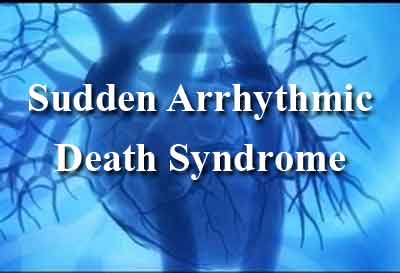- Home
- Editorial
- News
- Practice Guidelines
- Anesthesiology Guidelines
- Cancer Guidelines
- Cardiac Sciences Guidelines
- Critical Care Guidelines
- Dentistry Guidelines
- Dermatology Guidelines
- Diabetes and Endo Guidelines
- Diagnostics Guidelines
- ENT Guidelines
- Featured Practice Guidelines
- Gastroenterology Guidelines
- Geriatrics Guidelines
- Medicine Guidelines
- Nephrology Guidelines
- Neurosciences Guidelines
- Obs and Gynae Guidelines
- Ophthalmology Guidelines
- Orthopaedics Guidelines
- Paediatrics Guidelines
- Psychiatry Guidelines
- Pulmonology Guidelines
- Radiology Guidelines
- Surgery Guidelines
- Urology Guidelines
Post-Mortem Genetic Testing in Sudden Arrhythmic Death Syndrome

A Study was conducted to evaluate clinical utility and combined yield of post-mortem genetic testing (molecular autopsy) in cases of sudden arrhythmic death syndrome (SADS) and comprehensive clinical evaluation of the surviving relatives by Lahrouchi N, Raju H, Lodder EM, et al. The same was published as Utility of Post-Mortem Genetic Testing in Cases of Sudden Arrhythmic Death Syndrome. J Am Coll Cardiol 2017;69:2134-2145. Consistent with prior smaller series, this report suggests that application of both clinical and genetic evaluation may result in the identification of a putative gene mutation responsible for sudden death in 13% of cases. While this yield seems small, for the families of the victims, it may have profound implications. This report also suggests that the benefit of molecular autopsy is not limited to young cases, as the yield seems independent of the age at death
The investigators evaluated 302 validated SADS cases (median age, 24 years; 65% males), who underwent next-generation sequencing using an extended panel of 77 primary electrical disorder and cardiomyopathy genes. Pathogenic and likely pathogenic variants were classified using American College of Medical Genetics (ACMG) consensus guidelines. The yield of combined molecular autopsy and clinical evaluation in 82 surviving families was evaluated. A gene-level rare variant association analysis was conducted in SADS cases versus controls.
In the study a clinically actionable pathogenic or likely pathogenic variant was identified in 40 of 302 cases (13%). The main etiologies established were catecholaminergic polymorphic ventricular tachycardia (CPVT) and long QT syndrome (LQTS) (17 [6%] and 11 [4%], respectively). Gene-based rare variants association analysis demonstrated enrichment of rare predicted deleterious variants in RYR2 (p = 5 x 10-5). Combining molecular autopsy with clinical evaluation in surviving families increased diagnostic yield from 26% to 39%. - See more at:
Molecular autopsy using ACMG guidelines for variant classification identified a modest but realistic yield in SADS. The primary yield was CPVT and LQTS genes. Combining clinical and genetic evaluation was useful in the determination of the cause of death.
You can read the full Article by clicking on the link :

Disclaimer: This site is primarily intended for healthcare professionals. Any content/information on this website does not replace the advice of medical and/or health professionals and should not be construed as medical/diagnostic advice/endorsement or prescription. Use of this site is subject to our terms of use, privacy policy, advertisement policy. © 2020 Minerva Medical Treatment Pvt Ltd